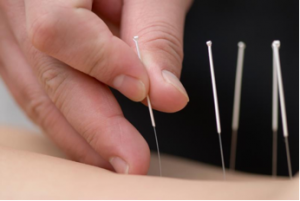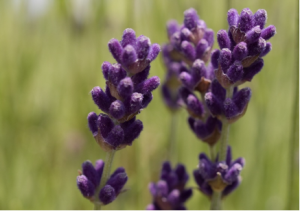You ask. I answer.
Q: Â What is Acupuncture?
A: Â Acupuncture involves the insertion of very fine, sterile needles into specific points on the body, the stimulation of which has been shown to have various positive effects on the body and overall health of the patient. Acupuncture has been developed over thousands of years both in China and around the world. It works specifically with the body’s vital energy, or qi (pronounced “chee”), which circulates throughout the body in specific pathways or channels.? From the perspective of Chinese medicine, illness arises when the healthy flow of qi becomes disrupted in some way. Acupuncture works to restore normal circulation of qi, allowing vital nourishment to reach all parts of the body. In doing so, acupuncture promotes the body’s innate capacity for self-healing and returns it to its natural state of optimal health.
Q: Â Does acupuncture hurt?
A: Â In general, patients feel little to no pain during an acupuncture treatment. Occasionally, a small pinch might accompany the insertion of the needle, although this is not always the case. Once the needle has been inserted, patients report various sensations associated with the stimulation of the body’s qi. Numbness, tingling, warmth, and a dull ache are some of the most commonly reported sensations. During your treatment, I will remain in constant communication with you to ensure your experience of the needles is entirely within your comfort zone.
Q: Â What should I expect at my first appointment?
A: Â During your first appointment, I will conduct a thorough health history and intake, help you identify your top health concerns and goals, address any additional questions you may have regarding acupuncture and Chinese medicine, outline a treatment plan for you, and complete your first treatment. In addition, I will feel your pulse and look at your tongue to gather more information about your symptoms and current state of health. Taking the pulse in Chinese medicine is not just about evaluating the rhythm and rate, rather, I am feeling for the shape, strength, and size of the pulse — among other qualities — which tell me about the internal landscape of your body. Sticking out your tongue to have it examined may seem strange, but the tongue actually reveals a lot about your health, specifically the state of your digestive system as a whole.
Expect your first appointment to last about 75-90 minutes, while all follow-up appointments typically last 45-60 minutes.
Q: Â How many treatments will I need?
A: Â The number of treatments varies greatly depending upon the particular patient and condition being treated.? For first time patients, weekly treatments for the first 4-8 weeks is generally recommended, although not always. Once the acute phase of an illness or condition has passed, we can space the treatments out to every 2 or 3 weeks for an additional 2 or 3 months. Once the body has reached a state of balance and the symptoms have abated, I may recommend monthly or quarterly treatments to help the body maintain this balance and prevent future illness from occurring. For more chronic conditions, more frequent treatments over longer periods of time — months or years — can sometimes be necessary. Expect 3 to 4 treatments at minimum before significant change is felt.? That said, some patients experience profound shifts after just the first appointment.? Every patient is different and responds differently to treatment. Your treatment plan — including number and frequency of treatments — will be tailored to your specific needs.
Q: Â Other than acupuncture, what services do you offer at your clinic?
A: Â In addition to acupuncture, I will often use cupping and moxibustion during your treatment. I also offer dietary and lifestyle counseling, as well as instruction in various exercises/stretches. When appropriate, I will prescribe herbal remedies for many of my patients. Each of these services is discussed below in greater detail:
BREATHWORK
Please visit this page to learn more about breathwork as a standalone service and to find out how to book a session.
DIETARY AND LIFESTYLE COUNSELING
I wholeheartedly believe that the food we take in is directly reflected in our physical, emotional, and psychological health. For this reason, I will address diet with every one of my patients to identify specific foods or patterns of eating that might be contributing to a particular health condition or concern. Additionally, various facets of our lifestyles, including sleep, exercise, and work/life balance play a major role in our overall health. Thus, I will address these aspects of day-to-day life with each of my patients as well, again identifying patterns of living that might be interfering with one’s capacity to attain optimal health. I truly believe that empowering patients to participate in their own healing journey is essential to the establishment of lifelong health. Diet and lifestyle are central to this process.
CUPPING
Cupping is the application of sterile glass cups to specific points or areas of the body. The cups are applied using local suction, and may either be left in place or moved over a particular body region (often the back). Cupping stimulates the flow of qi and blood to the areas being treated, promoting healing, stimulating the release of toxins, and helping to reduce muscle tension. Cupping is often used to treat musculo-skeletal injuries or muscle tightness, as well as the initial stages of the common cold.
MOXIBUSTION
Moxibustion (also called moxa) involves in application of specially prepared herbs to specific points on the body. The herbs are then burned, bringing warmth to the body, stimulating the flow of qi, and supporting overall health. Moxa has a wide variety of applications, and is particularly effective when used in conjunction with acupuncture and other modalities.
HERBAL REMEDIES
Although I firmly believe that addressing improper or unhealthy dietary habits can have a profound effect on one’s overall health, I also believe there are times when herbs can provide the jumpstart necessary to initiate dramatic healing. In these cases, I will work to create a formula specifically tailored to each patient, modifying it as necessary throughout the course of treatment. In most cases, I will not prescribe herbs on a first visit, preferring to get to know a patient and his or her particular health concerns and presentation before selecting or designing a formula. In addition to Chinese herbs, I will occasionally prescribe Western herbs or flower essences.



